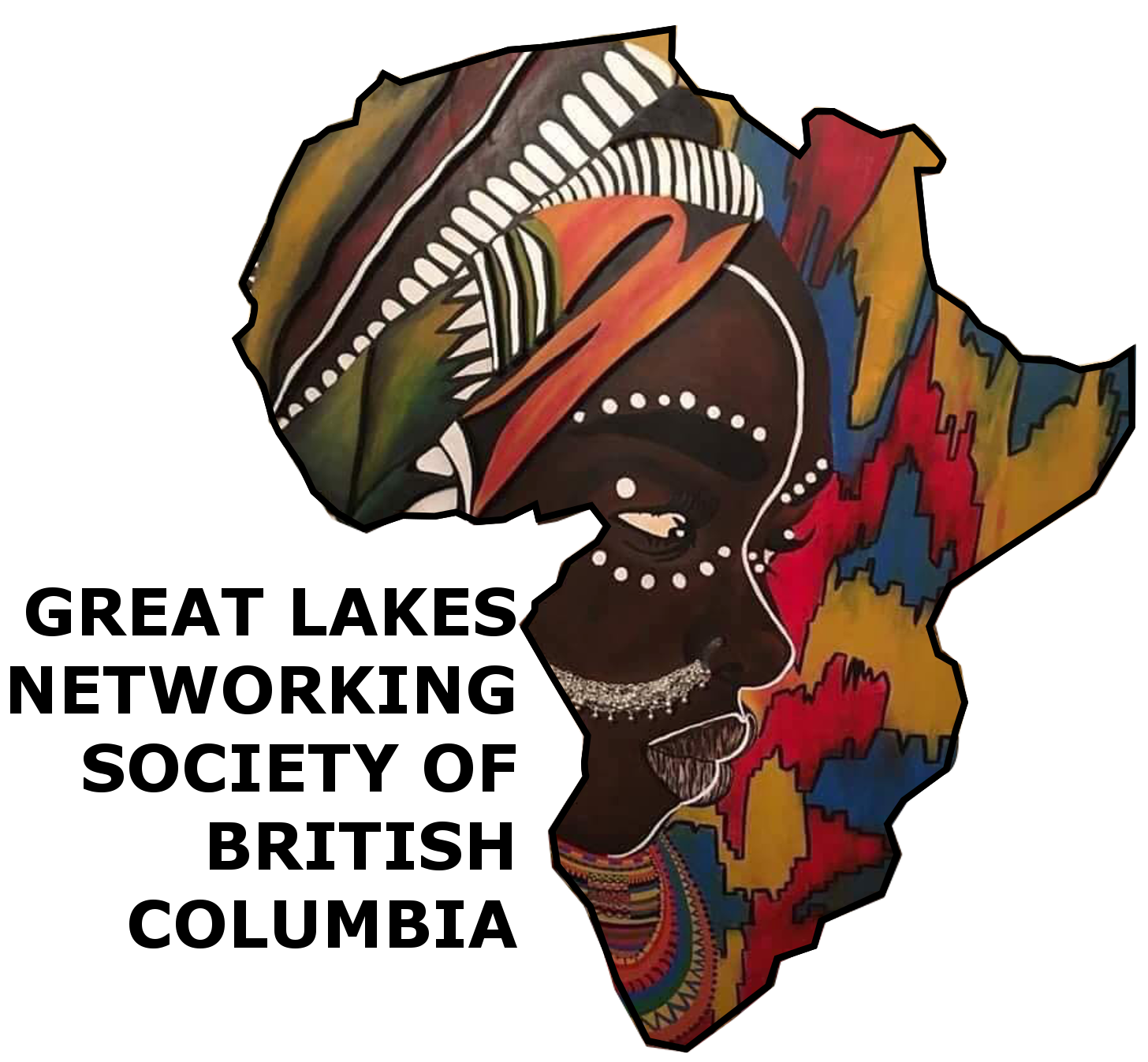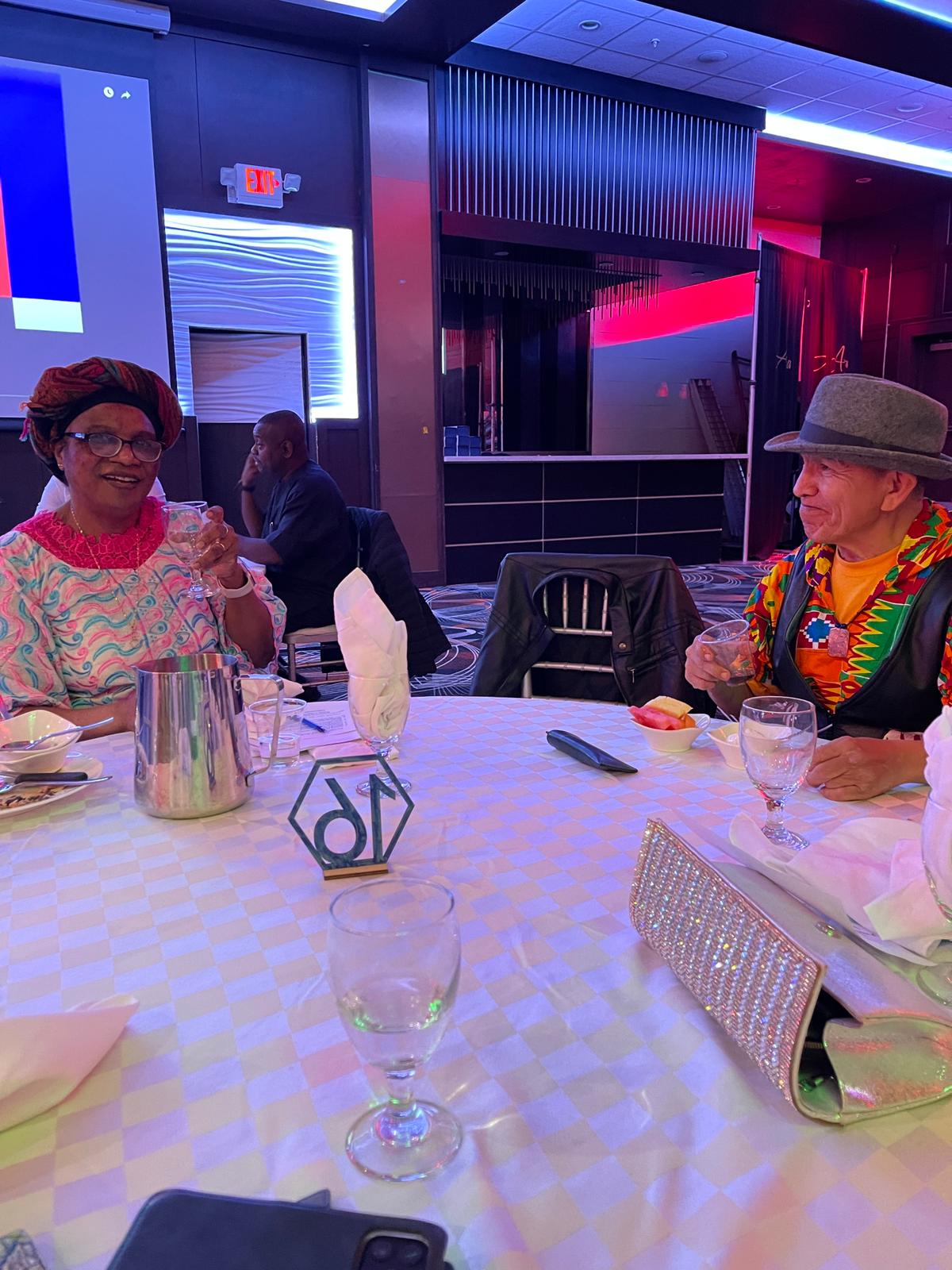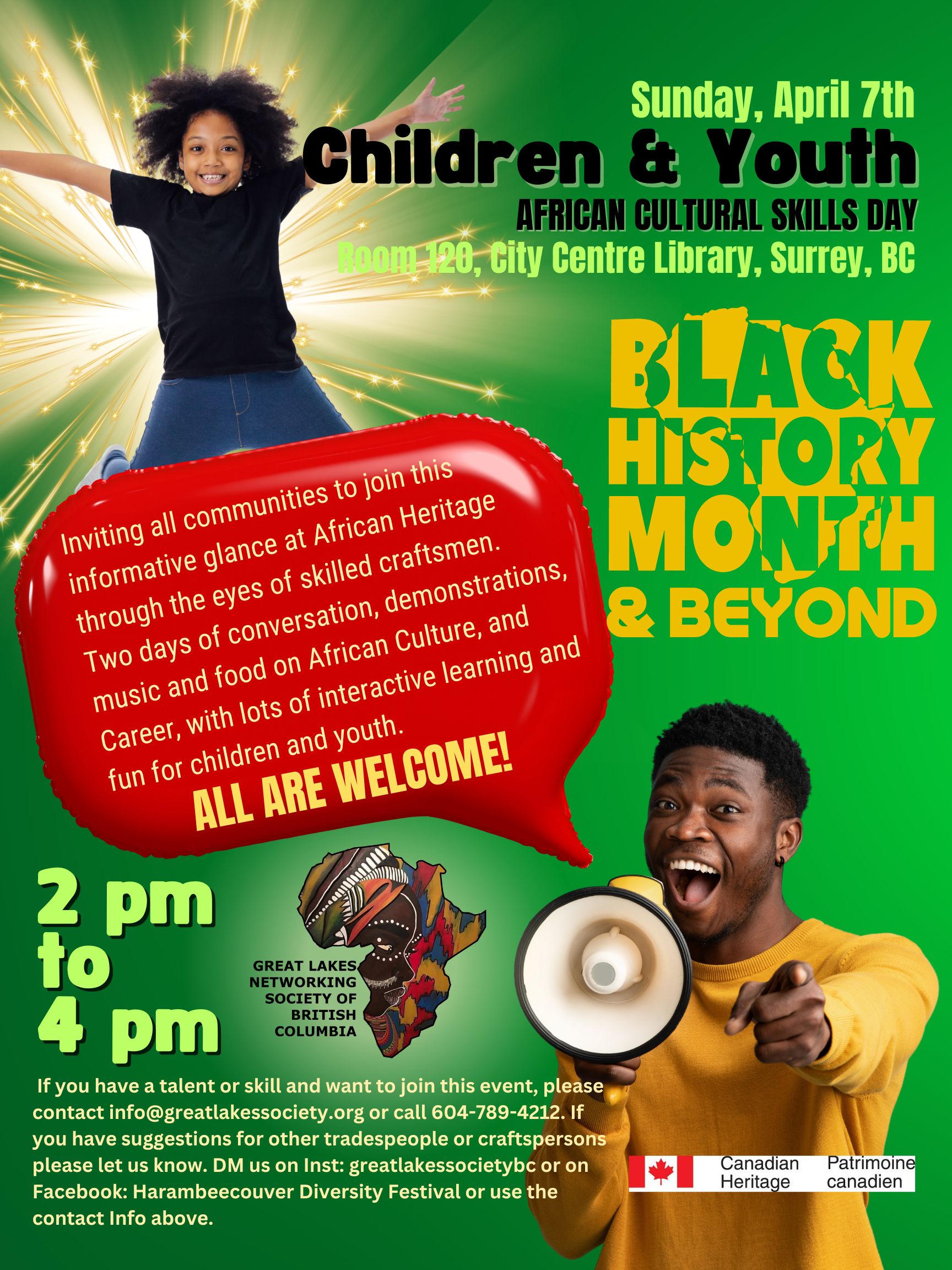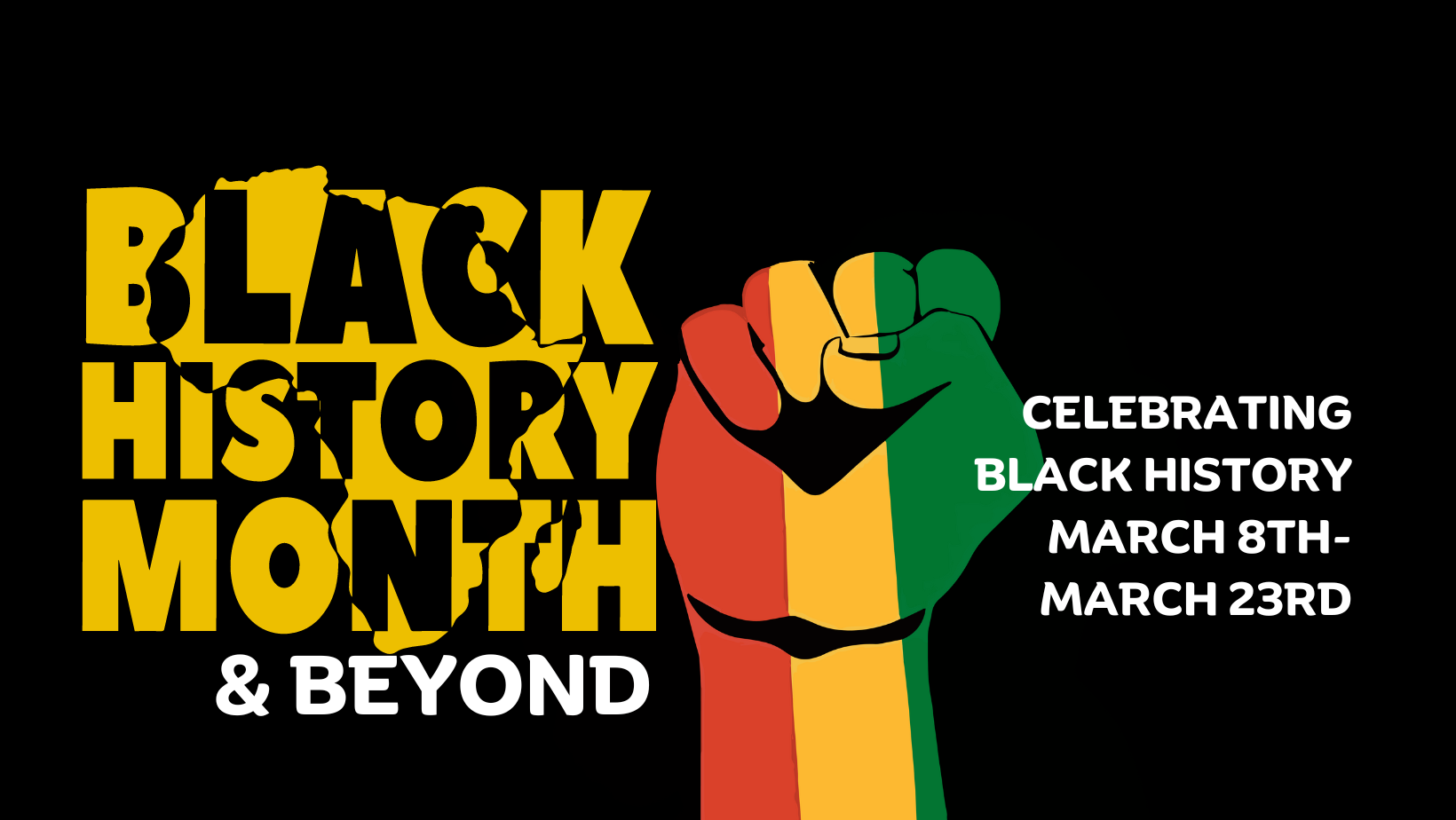Equity and Anti-Racism: A Culturally Competent Workforce
2021-10-10T03:19:22+00:00At Great Lakes Networking Society of BC, we developed a process for measuring the diversity and cultural competency of our administrative, governance and artistic workforce and how we assess Cultural competence within communities and Workforce
At GLBC we value diversity and inclusion, we work more productively in teams, to reach financial and programs goals more easily. We believe in a diverse workforce that is step toward our final goal: which is “a culturally competent workforce”. Cultural competence to is a deeper understanding of how various cultural differences affect all our identities, work styles and relationships. We know that our organization is at least partially culturally competent when our volunteers/employees work together effectively across all kinds of cultural groups. We take a variety of approaches in the attempts at cultural competence in the community and workplace.
Defining Cultural Competence
Before we discuss what, it means to be culturally competent, we first talk about what “culture” is, exactly. “Culture is shared traditions, beliefs, customs, history, folklore, and institutions of a group of people.” It is shared by people of the same ethnicity, language, nationality, or religion. Culture defines the rules and expectations about what behavior is acceptable and what behavior is not within any group. Culture can be also shared by the people in any community, large or small, ethnic, or otherwise. To us, it’s our organization’s own culture that paves the way for our volunteers/workers’ cultural competence.
We developed a statement on equity and anti-racism
Great Lakes Networking Society of BC’s Volunteer Board of Directors, developed a statement on anti-racism/discrimination, diversity, cultural competence, and equity, reaffirming the ongoing commitment to social change and racial justice.
The statement reads:
“Great Lakes Networking Society of BC’s is committed to advancing an anti-racist, and anti-discrimination agenda to promote diversity, cultural competence and equity within the communities. We affirm the importance of diversity and cultural competency advocacy, recognizing racial injustice that has caused trauma and harm to minoritized communities. We acknowledge that combatting racism, discrimination and inequity will be an ongoing commitment. The impact of economic, and environmental disparities, including diverse linguistic needs, may hinder the opportunity to access and receive quality and equitable services. Thus, we remain devoted to sourcing funds to enable us, organize community events that address discrimination, stigma, other social and moral determinants, we, lead by example, educating our affiliates and communities. Together, we stand united in support of racial justice and the intersection of diversity, cultural competency, and the well-being of humanity. “Great Lakes Networking Society of BC’s has an important role in ensuring to offer free access to equitable activities that engage the participation of all Canadians from all origins and global partners we work with, particularly those who have suffered as a result of systemic racism”. Our volunteer Board of Directors will soon create a committee on Anti-Racism, Equity, and Social Justice (ARES) to support the developed statement and establish an on-going organizational commitment to advance cultural diversity and equity in all our programs, activities and or events.
“The impact of racism affects mental wellness. The traumas experienced by minoritized communities are real whereby we openly recognize and address. Our work remains focused on protecting the rights and dignity of all individuals with lived mental health experiences. Responsibility means acknowledging the truth that race and ethnicity have been long-standing access barriers to receiving culturally sensitive and appropriate mental health care, etc. Prioritizing mental health equity is, therefore, a central tenet to our work”. In addition to releasing this updated statement, this year 2021, the committee to be created plans to:
Provide cultural competency and/or anti-racism training for staff and Board members
Cultural competence, then, describes a deep and thorough understanding of the importance of cultural identity and how it affects our working relationships. To be considered culturally competent, our volunteer staff are aware of their own cultural identities and can respect the cultural differences of everyone around them (in particular, the people they support and those they work with). “Cultural competence is the ability to understand the within-group differences that make each individual unique, while celebrating the between-group variations that make our country a tapestry.” The onus for cultural competency should lie with every single member of our organization, not just certain groups.
Establishing a Welcoming Culture
Wondering where our organization falls on the cultural competence scale “welcoming” we encourage terms as: Hospitable, comforting, desirable, inviting, personable, caring, and kindly. If you’ve ever walked into a party where you don’t know anyone and after about an hour, you realized you didn’t want to leave, you either met an old or just made a new friend that you really like or there’s a good chance the host did a great job at making you feel welcome.
The power of feeling welcome
We have the power to do the same thing. We realize that our most valuable resource is our staff, so we invest in a work culture that makes every volunteer/employee feel welcome. We’re using the example of a house party here but it’s easy to see how these “welcoming” behaviours easily transfer to a welcoming work culture. Whether we’re welcoming new volunteer/employees to our workplace culture, or we’ve recently updated our culture and we’re helping volunteers/employees adapt to the changes.
- Positivity:
“Our positive workplace culture improves teamwork, raises the morale, increases productivity and efficiency, and enhances retention of the workforce.”
- Being prepared. Volunteers/Employees enjoy the same treatment, we care about their comfort. Provide them with all of the tools and resources they need to get started and/or do their work.
- Offer a mentor/guide: we help every volunteer/employee to feel less isolated. Our welcoming cultures ensure that all our staff know that there is always someone who is there for them if they have any questions, feedback or if they just need support regarding their work. This sense of isolation is amplified for new hires, who often feel like a stranger in a foreign land. Building relationships during their first year helps our new hires feel less isolated and more confident.”
- Being seen: We never underestimate the power of attention. When community members’, volunteers’ staff don’t feel seen, they cannot feel a sense of belonging. At GLBC we always show genuine interest in each of our volunteers work and personal experience in our event places
- Inform and, include: When employees are excluded from meetings, event planning and not informed about our events goals and strategies, it’s the equivalent of everyone whispering to each other at a party and one person being left out. We boost a sense of belonging, by keeping our volunteers informed, we invite them to meetings, event planning and even in our campaigns, giving them background information
- Being heard: We encourage feedback and ideas from the community members and our volunteers, even if some ideas may not fit right away, shown through active listening welcoming ongoing feedback.
- The benefits of belonging
When our community members and our volunteers feel welcomed and valued in the workplace, events and or our projects, they are inspired to achieve great things.
Developed plans for supporting cultural safety and provided a working environment that is free of discrimination and that values Indigenous knowledge
Knowledge and respect for self: Awareness of how one’s own cultural values, knowledge, skills, and attitudes are formed and affect others, including a responsibility to address their unconscious bias, racism, and discrimination. Knowledge and respect for Aboriginal people: Knowledge of the diversity of Aboriginal peoples, communities and cultures, and the skills and attitudes to work effectively with them. Why cultural safety rather than cultural competency is required. A move to cultural safety rather than cultural competency is recommended. We propose a definition for cultural safety that we believe to be more fit for purpose in achieving health equity and clarify the essential principles and practical steps to operationalise this approach in our organisation and workforce development. Other processes to support and develop equity, diversity, and access within our organization



